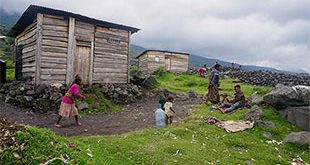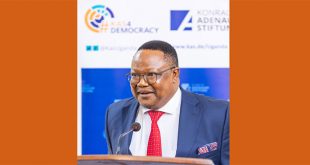
Maputo, Mozambique | AFP | Mozambique’s president said the country’s fragile peace process must not collapse after rebel leader Afonso Dhlakama, who had opened talks with the government, died unexpectedly aged 65.
President Filipe Nyusi hailed Dhlakama as “a citizen who has always worked for Mozambique” and said he was distraught at the news of his death.
“I hope that we as Mozambicans can continue to do everything so things do not go down,” Nyusi said in a telephone call to state television TVM late on Thursday.
“He did everything so that there would be peace. The last time he spoke to me, he said he would not going to miss out anything in peace negotiations.”
Several sources in Dhlakama’s opposition Renamo party said he died on Thursday after an unconfirmed heart attack.
For 39 years, Dhlakama led Renamo, the rebel group which fought a 16-year civil war against the ruling Frelimo party until 1992 and then emerged as an opposition party that still retained its armed fighters.
He had been in hiding for much of time since 2013 in the remote Gorongosa mountains after sporadic conflict again erupted in the country.
But Dhlakama had recently held meetings with Nyusi and he was seen as playing a key role in advancing the country’s nascent peace process.
– ‘Critical questions’ –
“His death and the unknown succession plan within Renamo will bring uncertainty,” Zenaida Machado, Mozambique specialist at Human Rights Watch, told AFP.
“It raises critical questions about the next Renamo leader’s ability to control hundreds of armed men in the bush and negotiate a long-lasting peace deal with the government.”
She said Dhlakama would be remembered for challenging the abuses of the ruling Frelimo party, but also for allowing his own forces to commit serious human rights violations with impunity.
In December 2016, Dhlakama announced a surprise truce with the government in the major first step towards a formal peace deal.
Nyusi and Dhlakama last met in February in Gorongosa to discuss disarmament and reintegration, and they appeared to have agreed on constitutional reforms that would decentralise power.
The reforms, currently under debate in parliament, would allow voters to directly elect provincial governors, who at present are appointed by the president.
But Renamo’s demands for better integration of its supporters into the police and military remained a sticking point in discussions.
“I expected a deal within the next eight weeks, but no longer as power in Renamo was centralised around Dhlakama and all key decisions needed to be agreed by him,” Alex Vines, the head of the Africa programme at the Chatham House think-tank, told AFP.
“This will impact the peace negotiations and will also impact Renamo’s electoral prospects in next year’s elections.”
 The Independent Uganda: You get the Truth we Pay the Price
The Independent Uganda: You get the Truth we Pay the Price


